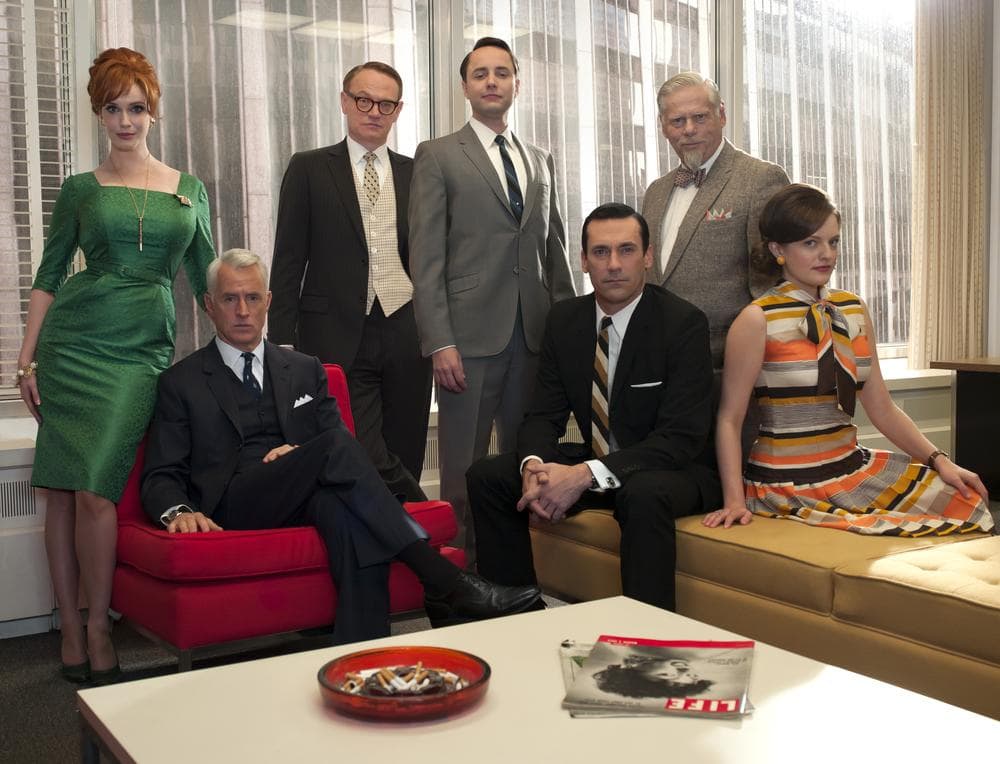Advertisement
I Found It At The Movies

TV is the new cinema—such is the prevailing sentiment of the time. James Wolcott’s recent Vanity Fair article is the latest premature obituary for the movies. But this casual acceptance of television’s coup-d’état as fact demands a little counterprogramming.
Wolcott’s throwaway challenge that no one actually believes “The Artist” is better than “Mad Men” may be true, but it supposes that the tastemakers of the Academy Awards and the Emmy Awards (each title respectively captured the top prize of its medium) always get it right. Does “Mad Men” look as good pitted against the 3-D visionary dazzle of Scorsese’s “Hugo”? As character-probing narrative, yes, “Mad Men” still stacks up; but as ocular proof of the moving image as something more than a set of ideas and talking mouths, “Hugo” suddenly appears the more artistic adversary. And film director Terrence Malick may be guilty of a maverick’s pretentiousness, but the ambition with which he wields a camera in “The Tree of Life” is beyond the artistic and commercial possibilities of TV.
Admittedly, movies are in a rough stretch right now. Titles sound interchangeable (2008’s comedy-drama “Smart People” uneasily brushes noses with 2009’s comedy-drama “Funny People,” though neither is smart or funny) and vacuous superhero flicks like “The Avengers” get strong reviews and box office they don’t deserve.
In the other corner, TV has gotten good since the advent of HBO, and network shows are getting sharper by the year, with sitcoms “Modern Family” and “30 Rock” leading the way. HBO’s “The Sopranos” ushered in the triumphant creative period of “The Wire,” “Breaking Bad” and “Mad Men.” What do these shows have in common? Strong characters and a storm of writing-acting.
At best, these series provoke the mind and heart. The senses? That’s why we still need movies. Even with ever-growing TV budgets, scope is lacking: “Game of Thrones” is a soaring fantasy/adventure achievement, but those battle scenes still lack vital extras. Material that calls for the spectacle and bombast of a Peter Jackson film gets a disappointingly skimpy treatment. Where is the majesty in a half-empty canvas?
Moreover, even the best shows struggle to keep their originality intact over repeated seasons. “Jumping the shark” refers to the moment in 1977’s fifth-season premiere of “Happy Days” in which the water-skiing main character jumps over a shark, the writers resorting to a left-field plot gimmick. After that overreach, “Happy Days” never recovered. TV honors a serialized tradition of filling up a season with 10 or more episodes, geared toward getting renewed. The writers must come up with twists and turns to prolong the action.
While individual seasons often master this grueling test of audiences and writers alike, these contrivances often hurt the show. “Dexter,” once the most deliciously macabre treat on the tube, is going into its eighth season even though it had exhausted its formula by season three. “The Killing” too started strong, only to succumb to teeth-gnashing turns of plot that asked viewers to prolong the central mystery beyond anyone’s caring. The success of many of these shows is predicated on smaller, better packaged stories that have a clear beginning, middle and end. A form familiar to moviegoers.
TV’s finest writers are lauded as “creators” and “showrunners.” David Chase created “The Sopranos” and Matthew Weiner created “Mad Men”—what do these two writers-producers have in mind for an encore now that they have helped transform TV to a respectable art form? They want to make pictures. Because when the height of TV drama, “The Wire,” is hailed as Dickensian, you know the real reason is that TV is so writing-heavy it’s almost literature to a soundtrack, leaving movies as the best refuge of directors.
Sure enough, the talent stream is trickling back as the television writers aim for bigger targets: David Chase hits theaters later this year with his writing-directing film debut, “Not Fade Away,” and Weiner’s film “You Are Here” lands in 2013. Trends are meant to shift, and the winds are now moving Tinseltown’s way.
We’ve come a long way since President Kennedy’s FCC chairman, Newton Minow, called TV a “vast wasteland.” Film and TV are now considered partners in elite culture circles. In Vanity Fair, James Wolcott points out that people at parties gush over their favorite shows. Because everyone has access to television, it is more inclusive and more broadly appealing. Fewer people see the same films, and when they do, they often disagree. “Shame,” “Melancholia” and “Take Shelter,” to name three, are angry, questioning films that dare you to like them.
There is value in being shaken up and troubled by these intimate, powerful films which deal in moral and narrative ambiguity; on TV, though, “next season” answers all questions. The risk of seeing a film—paying more than you think it’s worth, thrashing about for seats, encountering hostiles in your section, and keeping your lonely, curious thoughts to yourself for two hours—is part of the untidy thrill of experiencing art with uneasy answers.
This program aired on July 12, 2012. The audio for this program is not available.